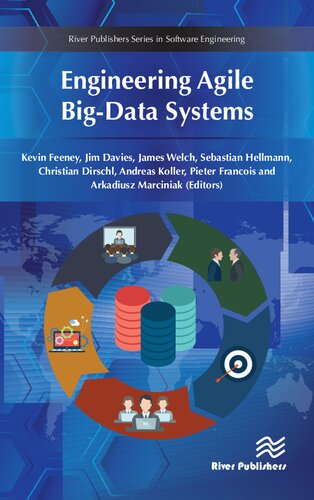

Most ebook files are in PDF format, so you can easily read them using various software such as Foxit Reader or directly on the Google Chrome browser.
Some ebook files are released by publishers in other formats such as .awz, .mobi, .epub, .fb2, etc. You may need to install specific software to read these formats on mobile/PC, such as Calibre.
Please read the tutorial at this link: https://ebookbell.com/faq
We offer FREE conversion to the popular formats you request; however, this may take some time. Therefore, right after payment, please email us, and we will try to provide the service as quickly as possible.
For some exceptional file formats or broken links (if any), please refrain from opening any disputes. Instead, email us first, and we will try to assist within a maximum of 6 hours.
EbookBell Team

4.0
76 reviewsTo be effective, data-intensive systems require extensive ongoing customisation to reflect changing user requirements, organisational policies, and the structure and interpretation of the data they hold. Manual customisation is expensive, time-consuming, and error-prone. In large complex systems, the value of the data can be such that exhaustive testing is necessary before any new feature can be added to the existing design. In most cases, the precise details of requirements, policies and data will change during the lifetime of the system, forcing a choice between expensive modification and continued operation with an inefficient design.
Engineering Agile Big-Data Systems outlines an approach to dealing with these problems in software and data engineering, describing a methodology for aligning these processes throughout product lifecycles. It discusses tools which can be used to achieve these goals, and, in a number of case studies, shows how the tools and methodology have been used to improve a variety of academic and business systems.